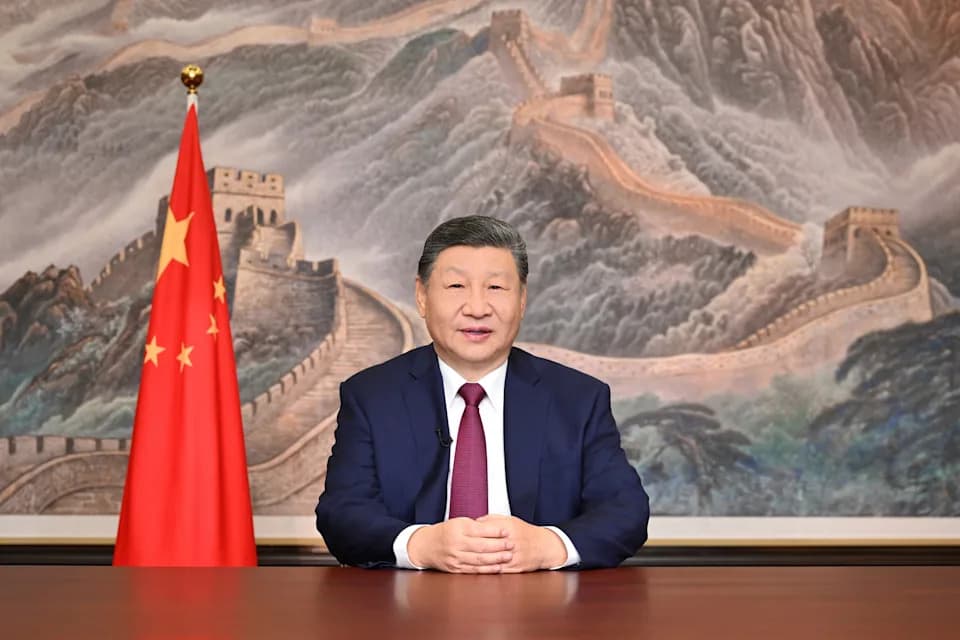China has said there is "no market" for Japanese seafood as tensions with Tokyo rise after Prime Minister Sanae Takaichi said a Chinese attack on Taiwan could threaten Japan's survival and justify a military response. Beijing's spokesperson warned of public outrage and hinted at possible import restrictions, though no formal ban has been confirmed. The dispute has already affected travel and tourism—China issued a travel advisory and airlines offered refunds—and a Tokyo tour operator reported a roughly 70% drop in bookings. Observers say further escalation could harm trade and bilateral ties.
China Says There Is 'No Market' for Japanese Seafood as Taiwan Dispute With Tokyo Deepens

China warned this week that there is "no market" for Japanese seafood, the latest escalation in a diplomatic dispute with Tokyo after remarks by Japan's prime minister about defending Taiwan.
At a regular foreign ministry briefing, spokesperson Mao Ning said public anger in China had been strong "due to the erroneous remarks made by Japanese Prime Minister Sanae Takaichi on important Taiwan issues." Mao added: "Under the current circumstances, even if Japanese seafood were exported to China, there would be no market for it."
What sparked the row
The dispute intensified after Prime Minister Sanae Takaichi told parliament that a Chinese attack on Taiwan would amount to "a situation threatening Japan's survival," and could therefore trigger a Japanese military response. Beijing considers Taiwan part of its territory and has repeatedly described the island's status as a "red line."
Economic pressure and travel impact
Mao's comments followed Japanese media reports that China had informed Tokyo of plans to ban seafood imports; Japan's Chief Cabinet Secretary Minoru Kihara said the government had not yet received formal confirmation. While no official ban was announced at the briefing, the remarks raised the prospect of renewed trade restrictions and other punitive measures.
China had suspended some seafood imports from Japan in August 2023 in protest at Tokyo's release of treated wastewater from the Fukushima nuclear plant, and only partially resumed imports earlier this year. The renewed threat comes alongside a Beijing advisory last week urging Chinese citizens to avoid travel to Japan. Although non-binding, the travel advisory is symbolically significant: nearly 7.5 million visitors from China traveled to Japan from January through September this year.
Chinese carriers later posted notices allowing customers refunds or free changes on some flights to Japan, and Japanese businesses have begun to feel the effects. Tokyo-based tour operator East Japan International Travel Service reported losing roughly 70% of its remaining bookings for the year. Vice president Yu Jinxin called the cancellations "a huge loss," warning that a prolonged dispute would cause serious financial strain.
Political backdrop
Takaichi, a politician known for advocating stronger defense capabilities, visited Taiwan earlier this year before becoming prime minister and urged cooperation on "defense challenges." She also met Taiwan's representative during the APEC summit and spoke with Chinese leader Xi Jinping, where she reportedly asked China to resume imports of Japanese beef and seafood. Her comments and engagements have repeatedly drawn criticism from Beijing.
Diplomatic stakes: Officials from both sides are signaling that political statements on Taiwan could carry economic consequences. Analysts warn that further escalation could affect trade, tourism and broader China–Japan relations.
As the row continues, Tokyo and Beijing face choices about whether to step back from rhetoric or to press economic levers that would have tangible impacts on businesses and travelers on both sides.
Help us improve.


























